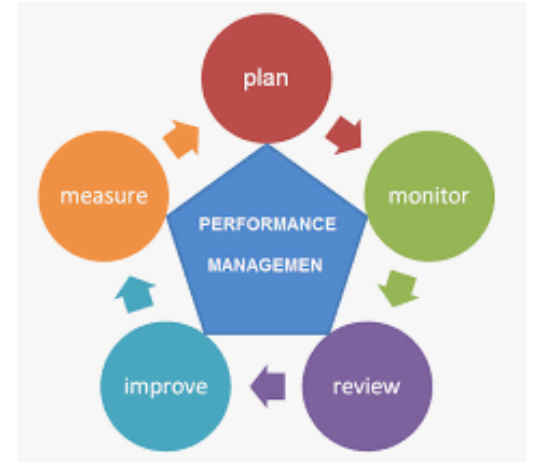Summary
This course identifies the knowledge and skills needed for effective management of individual and team performance and examines the design of performance management systems that aim to transform organizational objectives into performance outcomes.
Course Description
Performance management provides learners with the knowledge and understanding of identifying, measuring and developing the performance of individuals and teams and aligning their performance with the operational and strategic objectives of the organizations in different business environments. Implementing performance management systems is related with how the performance of people can be enhanced and inspired by leadership and direction and how it contributes to high-performance work organization, including a performance review process that combines challenge and support and places a focus on personal, team and organizational learning and accountability.
Furthermore, it
recognizes the importance of communication skills in the performance review
process and evaluates the need for employee involvement as well as transparent,
ethical and justifiable rewards for performance
Course Objectives: The objective of the course is to apprise the students about the importance of Performance Management in organizations and impart an understanding of the process of managing performance to achieve the organization’s current and future objectives.
Course Content:
1. Performance Management Framework
2. Performance Management Planning and Implementation
3. The control function of management
4. Management control alternatives and their effects
5. Financial results control systems
6. Performance measurement issues and their effects
7. Performance measurement and the balanced scorecard
· - Strategy maps
· - Creating performance measures
8. Ethical issues and Dilemmas in Performance Management
Learning Outcomes
Upon completion of this course, the student will be able to:
- Explain the concept of performance management and different advantages of implementing well-designed performance management systems.
- Explain and understand that performance management is an on-going process composed of several sub-processes, such as performance planning, execution, assessment, and review.
- Understand different approaches to performance measurement.
- Design a performance management system and compare and contrast various organizational performance management programs and best practices.
- Understand and develop key skills involved in effective performance management.
- Employ job-related performance standards and performance indicators that reflect the employees’ range of responsibilities.
- Identify and communicate appropriate actions with employees (e.g. training and development, wage increase, promotion, bonus etc.) based on their performance strengths and weaknesses
Skills and Attributes
Knowledge and Understanding: After completing this course, students should have gained:
a. A secure knowledge and understanding of the concepts, techniques and practices of effective performance management.
b. An insight into the practical issues in designing and delivering effective performance management of individuals, teams and organizations.
Cognitive Skills: After completing this course, students should be able to:
a. Understand and appreciate the importance of implementing well-designed performance management systems.
b. Recognize deficiencies in the existing systems and suggest how these can be improved.
Subject Specific Skills: After completing this course, students should be able to:
a. Plan effective performance management policies and practices to improve individual, group and organizational performance.
b. Devise and sustain arguments for using appropriate performance management techniques, rewards and sanctions to improve performance.
c. Demonstrate the communication skills required when managing achievement and underachievement.
d. Systematically decide and communicate strategic performance aims, objectives, priorities and targets.
e. Design efficient performance management system
f. Critically evaluate the effectiveness of performance management.
Student Learning Experience
The topics covered in
the course range from the analysis of several components of the performance
management process through an examination of approaches to performance
measurement, to implementing a performance management system and considering
different activities and techniques to improve employee performance.
Planned leaning activities and methods of teaching
a. Introduction to the main topics via online presentation and discussion (synchronous and recorded)
b. Self-study of related and selected literature.
Evaluation
Assignments/Quizzes/Examinations must be done in the LMS/submitted at the time specified. Requests for adjustments to that schedule must be made to the faculty member. Failure to do so will result in a mark of “0”, unless a justifiable reason can be proven with an appropriate documentation.
Suggested reading materials:
Lanen/Anderson/Maher. Fundamentals of Cost Accounting
Cabrera, E. B. 2020. Strategic Cost Management
Waren/Reeve/Duchac, 13 Ed. Managerial Accounting
- Teacher: Maramba, Veronica C.
- Enrolled students: 44

